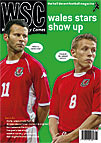 Holland's version of the FA Cup is so underappreciated, many teams field their reserve squads to compete as well. Ernst Bouwes investigates
Holland's version of the FA Cup is so underappreciated, many teams field their reserve squads to compete as well. Ernst Bouwes investigates
If the FA Cup is the best and most exciting cup competition in the world, the Amstel Cup, organised by the Dutch FA (KNVB), has to be a contender for the worst. Nowadays, the clubs playing in European competitions are given a bye as far as the last 16. This is only fair, according to the KNVB. “We need our best clubs to do well in Europe to gain points for us in the UEFA ranking,” says the KNVB’s Henk Kesler.
To make things even less interesting this season, the draw for the rest of the competition has been done already, like in a tennis tournament. So a club like NEC Nijmegen already know that if they win at Roda JC (currently fourth in the table) they will play away at Ajax, then probably meet Feyenoord away in the semi before a final against PSV.
Before the creation of the Dutch national league in 1955, the cup was only an afterthought at the end of the season for those clubs who were not involved in any championship play-offs. If it was organised at all. Hence at the start of the European Cup-Winners Cup there was no Dutch participant, as there had been no cup the year before. Since then, with the European ticket as a prize, clubs were more inclined to take part, although still not with much gusto. The KNVB switched the structure of the competition annually, with amateurs participating one year and a group phase as first round the next.
Sometimes their creativity was stretched a bit too far. In 1968 the cup started with 54 clubs, ten short of the appropriate 64, which required some clever scheming to produce the requisite two finalists. PSV got a bye in the second round, while two lucky losers went into the hat for the third. Both were out again before it really mattered. The “lucky loser” system ended the following season after Ajax, who had been defeated at AZ 67, sneaked back in again and went on the win the cup.
After some quiet years with only minor variations, such as switching home rights for safety and economic reasons or two-legged rounds, 1986-87 brought an interesting novelty with the participation of the reserve teams of professional clubs. These teams proved to be quite successful, with Sparta Rotterdam II eliminating Roda JC in the first season.
The next year, Ajax I could not get past the second round, but their reserve team marched on into the third. Amazingly, it turned out that there were few rules to prevent Ajax fielding their top players in what was nominally a reserve team. Only a couple of regulars took part in their win over Volendam, but a full-strength side turned up in the quarter-finals at RKC Waalwijk, where they crashed out for the second time that season.
Reserve teams have featured in the Amstel Cup ever since. In 1994-95, Ajax were unbeaten in any competition for a season, except for one night in March, when they lost both their matches in the quarter-finals of the cup. Coach Louis van Gaal played his best team for Ajax I at home against Feyenoord, while sending his reserves (including Kanu) to Utrecht to play for Ajax II. When the home game went into extra time, Van Gaal could not make a substitution without severely weakening the team, while Feyenoord brought on Mike Obiku, who scored the sudden-death winner in extra time. FC Utrecht also produced the deciding goal in the closing minutes.
Last season Ajax II even made it to the semi-finals, along with their first team. A year before Kesler of the KNVB claimed that the chances of a reserve team meeting its senior in the cup were negligible. And he was right: the draw did indeed separate them (I don't want to think about how that happened). Ajax II then lost only on penalties against FC Utrecht, who went on to meet Ajax I in the final.
To add insult to anything that should be part of a decent cup tradition, Kesler now says: “Our big clubs have to be involved in the Amstel Cup as long as possible to keep the interest of the general public. Economically there is no gain in a final between two smaller clubs, while the cup winner will probably lose European points for Holland the next season. Is that what you want?”
Oh, the romance of the cup…
From WSC 191 January 2003. What was happening this month